What Do You Know About
Genetics?
What does DNA stand for?
different natures in animals
different nerve action
deoxyribonucleic acid
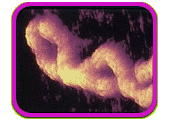
ANSWER: deoxyribonucleic acid
DNA is short for deoxyribonucleic acid (de-oxy-ri-bo-nu-cle-ic acid). DNA is a chemical in every cell of your body. It is shaped like a long, twisted ladder. This shape is called a double helix.
Which of the following is true?
only animals have DNA
only plants have DNA
every living thing has DNA
ANSWER: every living thing has DNA
DNA is found in all living things, including you! This amazing chemical tells each cell what to do and determines what an organism will look like.
What makes you you? Most scientists think it's:
only nature (what is determined by your genes)
only nurture (what happens to you in your life, from the food you eat to just plain luck)
both nature and nurture
ANSWER: both nature and nurture
Scientists are still debating how nature and nurture work together to make you who you are, but most agree that both play a role.
Genes are sections of DNA that determine your traits. Approximately how many genes do humans have?
12
30,000
800,000
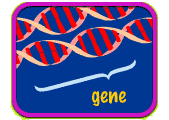
ANSWER: 30,000
Scientists used to think that humans had about 80,000 genes. Recently, it was discovered that we have about 30,000. We carry two copies of every gene , one copy from each parent.
Which of these traits is least affected by nurture?
height
artistic ability
eye color
ANSWER: eye color
Many things, such as what you eat, can affect how tall you'll grow. Even if you're a natural, making art takes practice. But eye color is a trait passed on through genes.
Why did scientists clone Dolly the sheep?
they really liked Dolly and wanted as many Dollys as possible
scientists wanted to see if they could make a clone from a cell of an adult mammal
Dolly was endangered
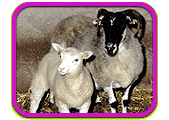
ANSWER: scientists wanted to see if they could make a clone from a cell of an adult mammal
Before Dolly, scientists used different techniques to clone animals. Dolly was the first animal to be cloned from a cell of an adult mammal.
How much of human DNA is similar to chimpanzee DNA?
10%
70%
98%
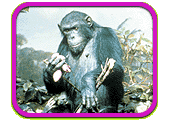
ANSWER: 98%
Believe it or not, humans and chimps have a lot of DNA in common! But as you can see, even small differences in genetic codes can make big differences in what an organism looks like.
How much of human DNA is similar to fruit fly DNA?
9%
35%
52%
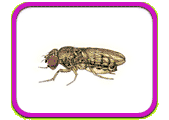
ANSWER: 52%
You can't tell by looking at a fruit fly and a human, but they have a lot of similar DNA. In fact, scientists study the fruit fly genes to help advance medical knowledge.
What is junk DNA?
DNA samples that had to be thrown away
DNA that molecular biologists used to think didn't do anything
DNA in genes with mistakes in the code
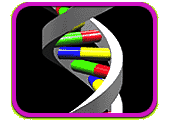
ANSWER: DNA that molecular biologists used to think didn't do anything
The human genome has a lot of DNA that's not genes. It's still a mystery to scientists why this DNA is there and what it does.
What is one thing that makes one identical twin different from his or her other twin?
the type of hair he or she naturally has (curly, straight, etc.)
his or her DNA
his or her fingerprint
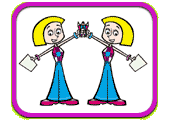
ANSWER: his or her fingerprint
Although they can have very different personalities, identical twins are often difficult to tell apart physically. But the fingerprints of each are unique.
Image Credits:
Photos: DNA, AMNH; The Genomic Revolution Exhibit: courtesy of Denis Finnin, AMNH; Gene: AMNH; Dolly: courtesy of the Roslin Institute; Chimpanzee: courtesy of AMNH Department of Library Services K12658




 Biodiversity
Biodiversity
 Brain
Brain
 Genetics
Genetics
 Marine BiOLogy
Marine BiOLogy
 MicrobiOLogy
MicrobiOLogy
 PaleontOLogy
PaleontOLogy
 ZoOLogy
ZoOLogy
 AnthropOLogy
AnthropOLogy
 ArchaeOLogy
ArchaeOLogy
 Astronomy
Astronomy
 Climate Change
Climate Change
 Earth
Earth
 Physics
Physics
 Water
Water
